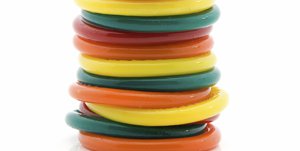How do we stack up?

Berlin has a certain kind of freedom, sexual liberation and hedonism that attract many people to visit or move here. Sex and drugs are typically out in the open in the queer party scene. Yet the amount of openly available resources for people who want to play safer is unsettling, especially compared to other international queer capitals
In New York City, anyone with a smartphone can pinpoint exactly where to pick up a free handful of condoms with an app developed by the city's health department. They distribute over three million free condoms a month through a network of 3,000 locations. “What we have in Berlin is Safety4Free, organized by Deutsche AIDS Hilfe and manCheck,“ two groups on national and local levels, says Jens Petersen of Berlin AIDS Hilfe (BAH). “You can get condoms for free from every location that is a member.“ Participating locations – all voluntary – are clubs where sex takes place amongst men, meaning that Safety4Free is geared specifically toward people with higher risk, but ultimately that means that only around 40 clubs get serviced. Furthermore, “there is no centralized control“ to ensure that condoms and other resources are always available. As for a technological counterpart, Petersen says, “I know of no current plans for an app.“
In London and New York City, anonymous HIV tests are available, including home test kits and testing in bars, clubs and parks. In Germany, home test kits cannot legally be sold. Anonymous HIV and STI testing in Berlin takes place mostly just in clinics and fixed locations. “It is possible to get a free, anonymous test at the Zentrum für sexuelle Gesundheit und Familienplanung. There are five of them,“ shares Petersen. Keep in mind you’ll have to wait days for the results. If you want anonymous rapid testing, you can visit the offices of BAH, Mann-O-Meter, Pluspunkt or Fixpunkt during limited opening hours – just be prepared to pay 10 to 25 euros, although “if you have low or no income, you can get the test for free.“
Since 2012, HIV-negative New Yorkers can take a daily medication called PReP that reduces their chances of contracting the virus by up to 92%. Despite a recommendation from the World Health Organization last year, it still hasn’t been approved for public use outside the United States. Gay Men’s Health Charity in London and Deutsche AIDS-Gesellschaft have both pushed for the green light, but access in Europe still feels distant.
When resources are scarce, it’s easier for people to take more risks. Using drugs and having sex will probably never cease to exist in any queer party scene, let alone in Berlin. Berlin needs to keep up with its queer sister cities with increased outreach and more resources. A queer scene that thrives doesn’t mean that infection needs to, too.
Brogan Luke Geurts & Joey Hansom
Folge uns auf Instagram